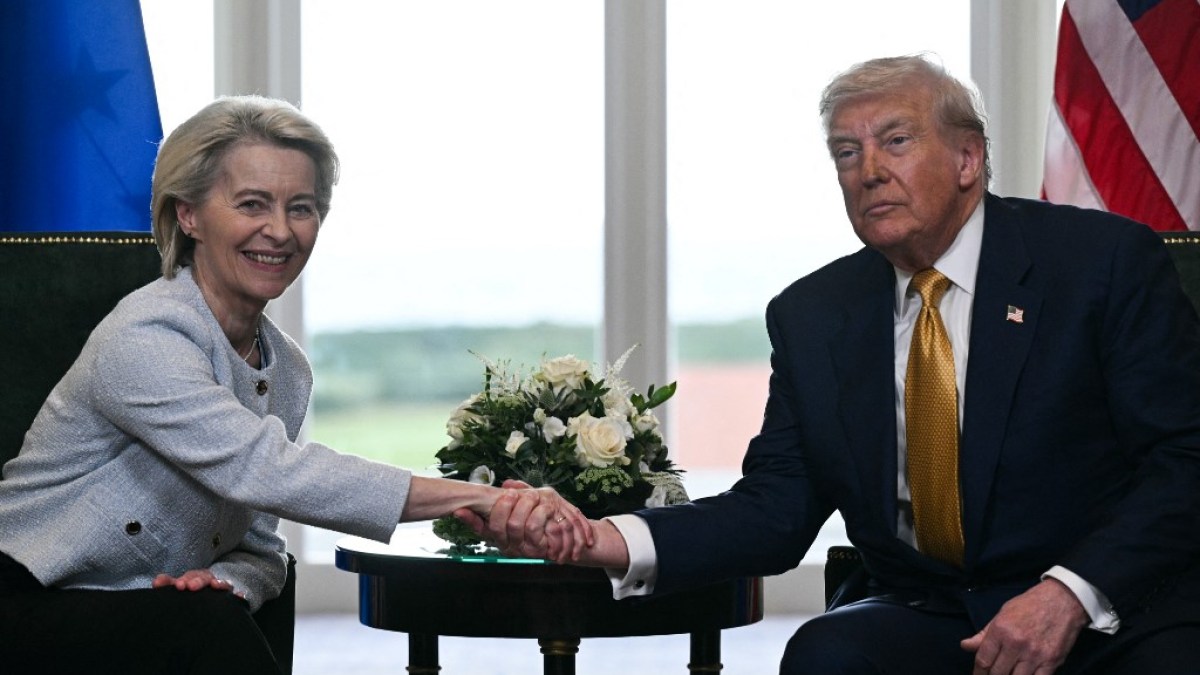A comprehensive trade agreement between the US and the European Union prevents a full-fledged transatlantic trade war by imposing a 15% import tariff on the majority of EU goods.
Before the steep tariffs’ introduction deadline of August 1st, US President Donald Trump and European Commission President Ursula von der Leyen reached a deal on Sunday in Scotland.
The US leader hailed the deal as the “biggest deal” ever made, and the EU chief praised it as a much-needed “stability” and “predictability,” according to both von der Leyen and Trump.
What, however, are European leaders’ opinions regarding the deal with the world’s largest trading partner? What responses have people had?
Denmark
Danish Foreign Minister Lars Lokke Rasmussen stated that “the trade conditions will not be as good as they were before, and it is not our choice. However, a balance must be struck to stabilize the situation and allow both sides to live with.”
Finland
The deal, according to Finnish Prime Minister Petteri Orpo, “provides much-needed predictability to Finnish companies and the world economy.” “Trade barriers must be continued.” He claimed that only free transatlantic trade benefits both parties the most.
France
An alliance of free peoples, organized to affirm their shared values and advance their shared interests, resigns to submission, according to French Prime Minister Francois Bayrou.
Germany
German Chancellor Friedrich Merz claimed the agreement had prevented a trade war that had had had a significant impact on the export-focused German economy. The automotive industry, where the current tariffs of 27.5 percent will be almost halved to 15 percent, is one example.
Berlin sees the need for further negotiations, according to a government spokesman. At a press conference in Berlin, the spokesperson stated, “We see a need for further negotiations. It is undoubtedly no secret.” He added that “the EU Commission and the German government are now fully committed to this” and that more details of the agreement were still to be worked out.
Hungary
Viktor Orban, the prime minister of Hungary, criticized the agreement. We suspected this would occur because the US president is a heavyweight in negotiations, while Madame President is featherweight, he said, adding that “this is not an agreement.” Donald Trump ate von der Leyen for breakfast, which is what happened, according to him.
Ireland
The deal, according to Irish Trade Minister Simon Harris, provides “a measure of much-needed certainty for Irish, European, and American businesses, who together represent the world’s most integrated trading relationship.”
Ireland regrets the agreement’s inclusion of the 15% base tariff, but he said it is important for us to now have more certainty about the foundations of the EU-US trade relationship, which are essential for jobs, growth, and investment.
Italy
Giorgia Meloni, the prime minister of Italy, said, “It’s good that there is an agreement, but I can’t judge it in the best way if I don’t see the details.” She stated at a summit in Ethiopia that “trade escalation would have had unanticipated and potentially devastating consequences.”
Meloni, a Trump ally on a number of issues, earlier this month, warned of a “trade war within the West.”
Romania
Prime Minister Ilie Bolojan “salutes that a trade agreement was reached and… feels it is a good omen,” the Romanian government’s press office said in a statement. It eliminated the uncertainty and disruptions that had previously caused transatlantic trade relations, according to the statement.
Spain
Pedro Sanchez, the prime minister of Spain, declared he was in favor of the agreement but “without much enthusiasm.”
“I value the European Commission president’s approachable and cooperative behavior. In any case, he declared at a press conference that he supports this trade agreement without being enthusiastic.
Sweden
“This agreement may be the least least bad option, but it does not make anyone richer.” According to an initial assessment, the agreement appears to have some predictability, according to Swedish Trade Minister Benjamin Dousa.
Source: Aljazeera

Leave a Reply